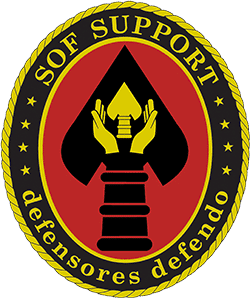U.S. Special Operations Forces in the Philippines, 2001–2014
Read full article on Rand.org
This report examines the 14-year experience of U.S. special operations forces in the Philippines from 2001 through 2014. The objective of this case history is to document and evaluate the activities and effects of special operations capabilities employed to address terrorist threats in Operation Enduring Freedom — Philippines through (1) training and equipping Philippine security forces, (2) providing operational advice and assistance, and (3) conducting civil–military and information operations. The report evaluates the development, execution, and adaptation of the U.S. effort to enable the Philippine government to counter transnational terrorist groups.
An average of 500 to 600 U.S. Army, Navy, Air Force, and Marine Corps special operations units were employed continuously under the command of a joint special operations task force. They provided training, advice, and assistance during combat operations to both Philippine special operations units and selected air, ground, and naval conventional units; conducted civil–military and information operations on Basilan, in the Sulu archipelago, and elsewhere in Mindanao; provided intelligence, surveillance, reconnaissance, medical evacuation, and emergency care; aided planning and intelligence fusion at joint operational commands and force development at institutional headquarters; and coordinated their programs closely with the U.S. embassy country team. The authors conclude that Operation Enduring Freedom — Philippines contributed to the successful degradation of transnational terrorist threats in the Philippines and the improvement of its security forces, particularly special operations units. It identifies contributing and limiting factors, which could be relevant to the planning and implementation of future such efforts.
Key Findings
U.S. Special Operations Forces’ Activities in the Philippines Between 2001 and 2014 Contributed to a Reduced Transnational Terrorist Threat and Support for Threat Groups
- The number of enemy-initiated attacks has dropped, the number of Abu Sayyaf Group (ASG) militants has decreased, and polls show reduced support for the ASG and a substantial majority reporting satisfaction with Philippine security forces.
U.S. Special Operations Forces’ Activities in the Philippines During That Period Also Increased Philippine Security Forces’ Capabilities at the Tactical, Operational, and Institutional Levels
- At the tactical level, U.S. special operations forces (SOF) provided training, advice, and assistance to conventional Armed Forces of the Philippines (AFP) units at all echelons throughout Mindanao, including Philippine Army, Marine Corps, Navy, and Air Force units. In the later years of Operation Enduring Freedom — Philippines, U.S. SOF also provided training, advice, and assistance to the PNP Special Action Forces. U.S. SOF interviewees judged that Philippine SOF are among the most proficient of those Asian SOF units with which they had worked.
- At the operational level, U.S. SOF advised and assisted the AFP headquarters to improve its joint processes and integrate command and control, planning, and intelligence functions.
- At the institutional level, U.S. SOF contributed somewhat to strategy, planning, and coordination at the AFP national headquarters, and they helped Western Mindanao Command develop its plans and intelligence analysis and fusion capabilities.
Activities During That Period Had Other Effects as Well
- The activities enhanced the bilateral defense ties between the United States and the Philippines.
Recommendation
- U.S. counterterrorism policy in recent years has sought to rely increasingly on indigenous forces. Some efforts have enjoyed greater success than others, including this Philippine example. The study found that key factors that contributed to success in this case were: 1) maintaining the sovereign government lead, which avoided U.S. dependency; 2) adjusting plans through regular assessments; 3) employing SOF and other capabilities in a synergistic way; and 4) creating and maintaining interagency coordination. These findings may be useful in developing policy options and plans for other long-term SOF and partner building missions.
Table of Contents
- Chapter One Introduction
- Chapter Two U.S.-Philippine Relations in Historical Perspective
- Chapter Three 2001–2004: The Initiation of Operation Enduring Freedom — Philippines
- Chapter Four 2005–2007: The Move to Jolo and Operation Ultimatum
- Chapter Five 2008–2010: Expansion of Effort
- Chapter Six 2010–2012: Transitioning Up
- Chapter Seven 2012–2014: Zamboanga Siege and Transitioning Out
- Chapter Eight Conclusion
- Appendix A Balikatan 02-1 Terms of Reference
- Appendix B Plan Analysis Tool
Research conducted by
This research was sponsored by the Office of the Assistant Secretary of Defense for Special Operations/Low-Intensity Conflict and conducted within the International Security and Defense Policy Center of the RAND National Defense Research Institute, a federally funded research and development center sponsored by the Office of the Secretary of Defense, the Joint Staff, the Unified Combatant Commands, the Navy, the Marine Corps, the defense agencies, and the defense Intelligence Community.
This report is part of the RAND Corporation Research report series. RAND reports present research findings and objective analysis that address the challenges facing the public and private sectors. All RAND reports undergo rigorous peer review to ensure high standards for research quality and objectivity.
This document and trademark(s) contained herein are protected by law. This representation of RAND intellectual property is provided for noncommercial use only. Unauthorized posting of this publication online is prohibited; linking directly to this product page is encouraged. Permission is required from RAND to reproduce, or reuse in another form, any of its research documents for commercial purposes. For information on reprint and reuse permissions, please visit www.rand.org/pubs/permissions.
The RAND Corporation is a nonprofit institution that helps improve policy and decision-making through research and analysis. RAND’s publications do not necessarily reflect the opinions of its research clients and sponsors.
